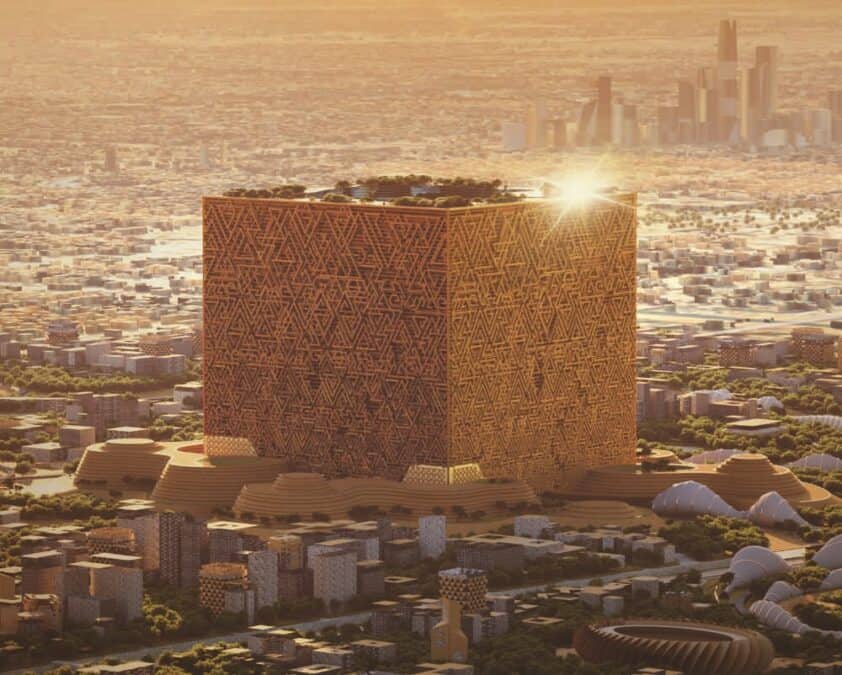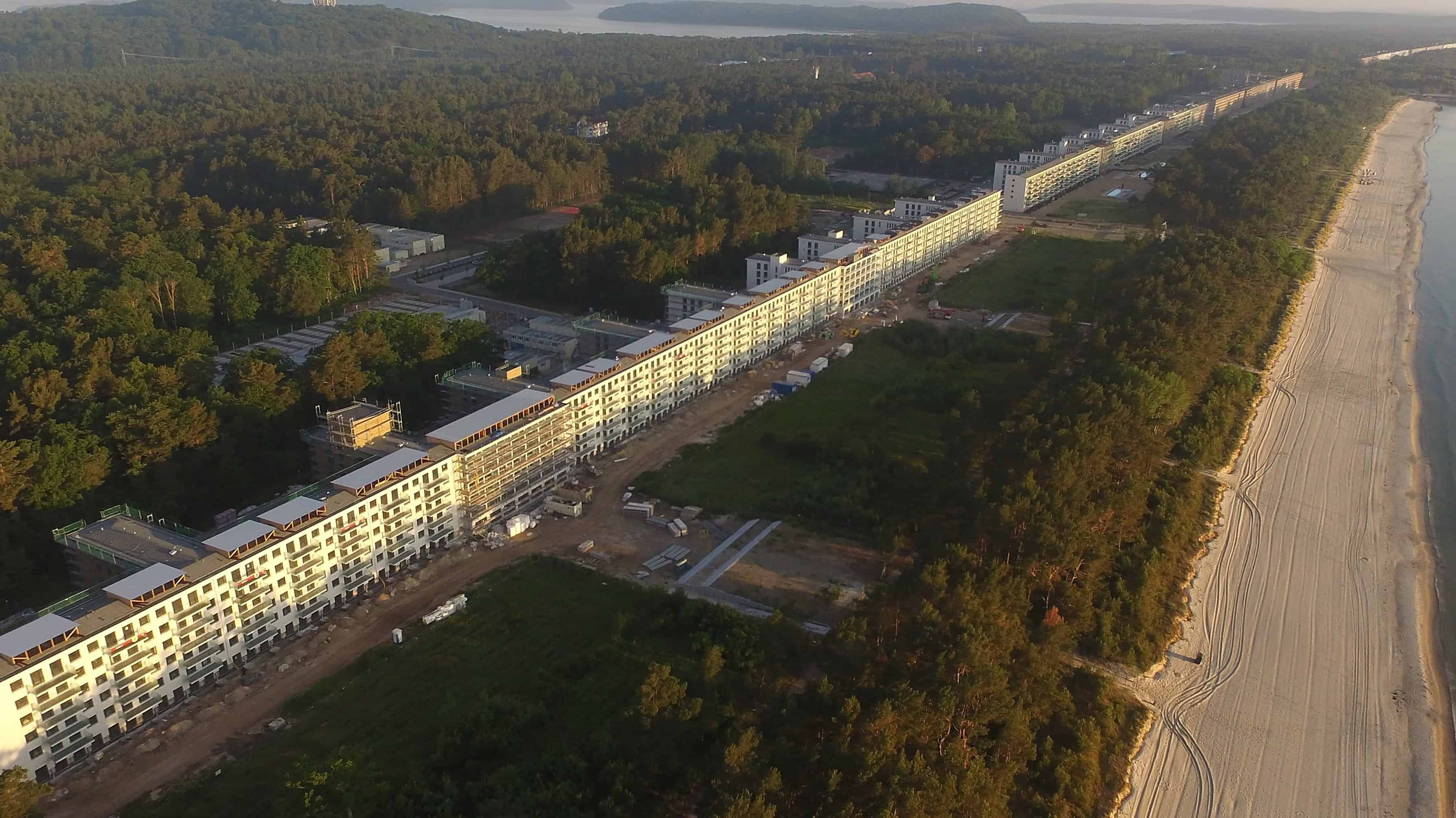RIYADH – With sustainable development being the prime focus, Saudi Arabia is investing significant amount of money into the development of new modern cities to change the existing building patterns in the country.
One of the latest urban development projects is the “Cube,” announced by Crown Prince Mohammed bin Salman on February 16. The massive structure, which will be 20 times larger than the Empire State Building, is part of the Kingdom’s futuristic projects and cities plan.
The Cube will feature a museum, a university for technology and design, a theater, and more than 80 entertainment venues, contributing to the development of the future capital, Riyadh, in line with the Saudi Vision 2030 goals.
The project, located northwest of Riyadh, spans over 19 square kilometers, with a floor area of more than 25 million square meters, and the capacity to shelter thousands of residents.
The Cube will include 104,000 residential units, 9,000 hospitality units, 980,000 square meters of commercial space, and 1.4 million square meters of office space, as well as 620,000 square meters of entertainment space.
The designs for the project will focus on sustainability standards and improving the quality of life, including green spaces, walking paths, promoting health and sports concepts, and community activities.
The project is expected to create 334,000 direct and indirect jobs and add $48 billion to the Saudi economy, according to the Saudi Public Investment Fund.

The Line
Another massive project is “The Line” city, part of the “NEOM” project, announced by bin Salman last July. The city aims to redefine urban development by prioritizing human health and well-being, with a focus on preserving nature and relying on renewable energy.
The city is devoid of streets, cars, and emissions, reducing infrastructure expansion and enhancing efficiency and sustainability. It will have medical centers, schools, entertainment facilities, and green spaces, relying entirely on artificial intelligence technologies and 100 percent clean energy.
One of the essential features of “The Line” is that it has a width of only 200 meters along a length of 170 kilometers, and a height of 500 meters above sea level. It will be built on at most 34 square kilometers and will house approximately 9 million people.
It is distinguished by reducing infrastructure expansion and enhancing the city’s efficiency and sustainability; additionally, all residents will have access to all facilities and services within 5 minutes, with a high-speed train connecting both ends of the city within 20 minutes.
“Glass surfaces, which are reflective mirrors that give it a unique character, allowing its details to merge with nature,” will be used on both sides of the city.
The “NEOM” project is one of the massive projects in the Saudi Public Investment Fund’s diverse investment portfolio, which aims to diversify the Kingdom’s resources, which rely heavily on oil exports.
The urban development
The Saudi leadership is focusing on establishing good infrastructure for urban agglomerations, creating an attractive and stimulating environment for foreign investments, and being among the best cities in the world for housing.
The primary approach to sustainable development is capitalizing on growing opportunities, integrating concurrently developed projects, and implementing place-specific policies based on local characteristics and potential strengths.
The Saudi Vision 2030 goals are implicitly related to urban planning, such as hosting more pilgrims and Umrah performers, improving government apparatus performance, and managing diverse ranges of physical and technical infrastructure. Riyadh is being developed to become one of the best cities globally.








